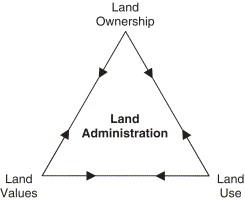Kenya’s diverse and beautiful landscapes hold a puzzle that has long perplexed its citizens and policymakers alike – the intricate world of land ownership and titles. In this article, we seek to explain the complexities of Kenya’s land laws, exploring how ownership is established, and the various types of titles that govern land transactions in the country. 
Understanding the historical context of land ownership in Kenya
Land in Kenya has always held immense value, not just economically, but also culturally and socially. The intricate web of ownership and titles has been shaped by a long and tumultuous history that continues to impact the country to this day.
One key aspect to consider is the colonial legacy in Kenya, where land was forcefully taken from indigenous communities and redistributed to European settlers. This led to a system of land tenure that favored the colonizers, leaving many Kenyans disenfranchised and marginalized. Additionally, the post-independence period saw further challenges as the government implemented land reforms that aimed to address historical injustices but often resulted in confusion and disputes over rightful ownership.
The complexities of land titling in Kenya
Land titling in Kenya is a complex and challenging process that often leaves many individuals grappling with ownership disputes and legal battles. One of the main challenges is the lack of a centralized land registry system, which leads to confusion and inconsistencies in land ownership records.
Furthermore, the prevalence of informal land transactions and the existence of multiple types of land titles further complicate the issue. Some of the common land titles in Kenya include **freehold titles**, **leasehold titles**, and **group ranch titles**. Each type comes with its own set of rules and regulations, making it difficult for individuals to navigate the system. It is important for landowners to seek legal advice and conduct thorough research to ensure that their land titles are legitimate and accurately reflect their ownership rights.

Recommendations for improving land administration in Kenya
Improving land administration in Kenya requires a multifaceted approach that addresses various issues in ownership and title management. One key recommendation is to implement a centralized database that consolidates all land records, making it easier to verify ownership and transfer of titles. This database should be easily accessible to the public and updated regularly to ensure accuracy. Additionally, the government should invest in digitizing land records to streamline processes and reduce the risk of corruption and fraud.
Another recommendation is to enhance public awareness and education on land rights and ownership. This can be achieved through workshops, community outreach programs, and the development of educational materials that simplify complex land laws for the general population. By empowering citizens with knowledge about their land rights, they can better advocate for themselves and hold accountable any entities that engage in fraudulent land transactions.

The role of technology in simplifying land ownership processes
Technology has played a pivotal role in revolutionizing the way land ownership processes are carried out in Kenya. By digitizing records and implementing online platforms, the government has made it easier for citizens to access information regarding land ownership and titles. This has not only simplified the process but has also significantly reduced cases of fraud and corruption in the land sector.
One of the key advancements in technology that has streamlined land ownership processes in Kenya is the introduction of blockchain technology. Through blockchain, land transactions are securely recorded, ensuring transparency and security for all parties involved. Additionally, mobile applications have been developed to provide real-time updates on land ownership status, making it easier for individuals to verify title deeds and conduct due diligence before making any land transactions. With technology at the forefront, Kenya is gradually unlocking the land puzzle and paving the way for a more efficient and accountable land ownership system.
Key Takeaways
As we have delved into the intricate world of land ownership and titles in Kenya, it becomes clear that the puzzle is not easily solved. However, with a better understanding of the complexities involved, we are one step closer to unlocking the mystery. By arming ourselves with knowledge and asking the right questions, we can navigate the terrain of land ownership with confidence and clarity. As we continue on this journey, let us remember that every piece of the puzzle is essential in creating a complete picture of land ownership in Kenya. Let us strive to unravel the mysteries and pave the way for a more transparent and equitable system for all.




Join The Discussion